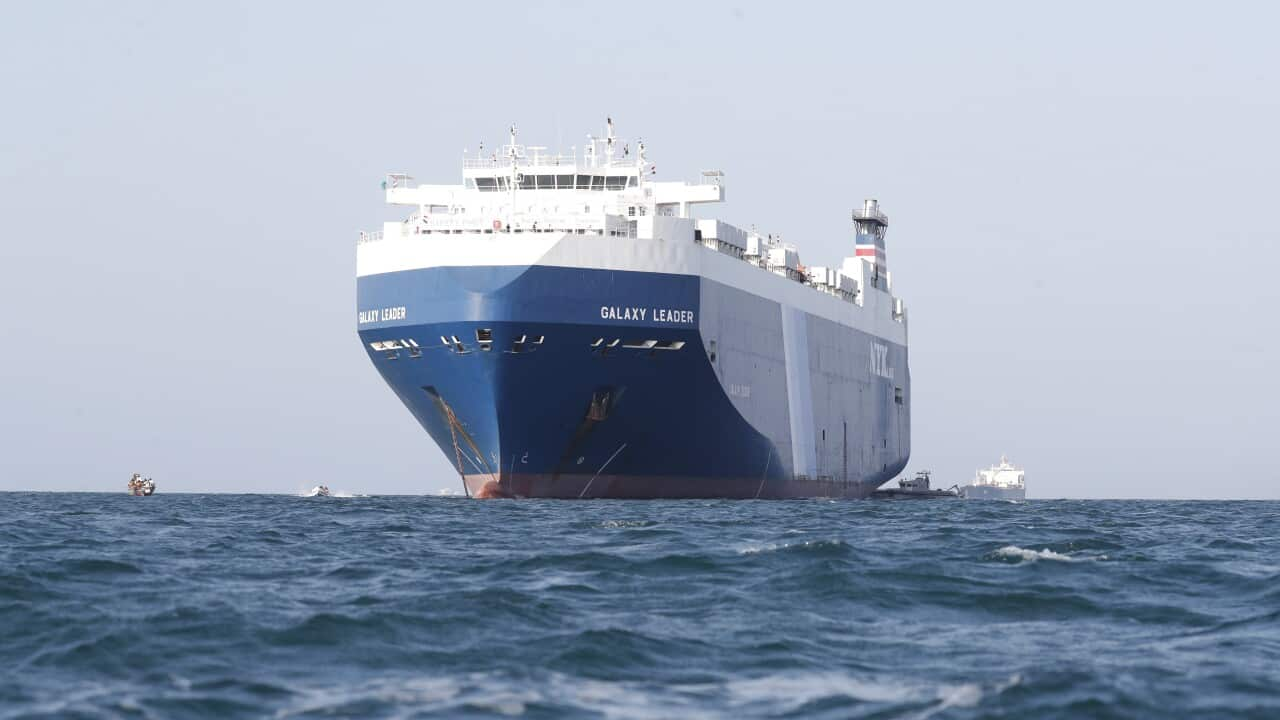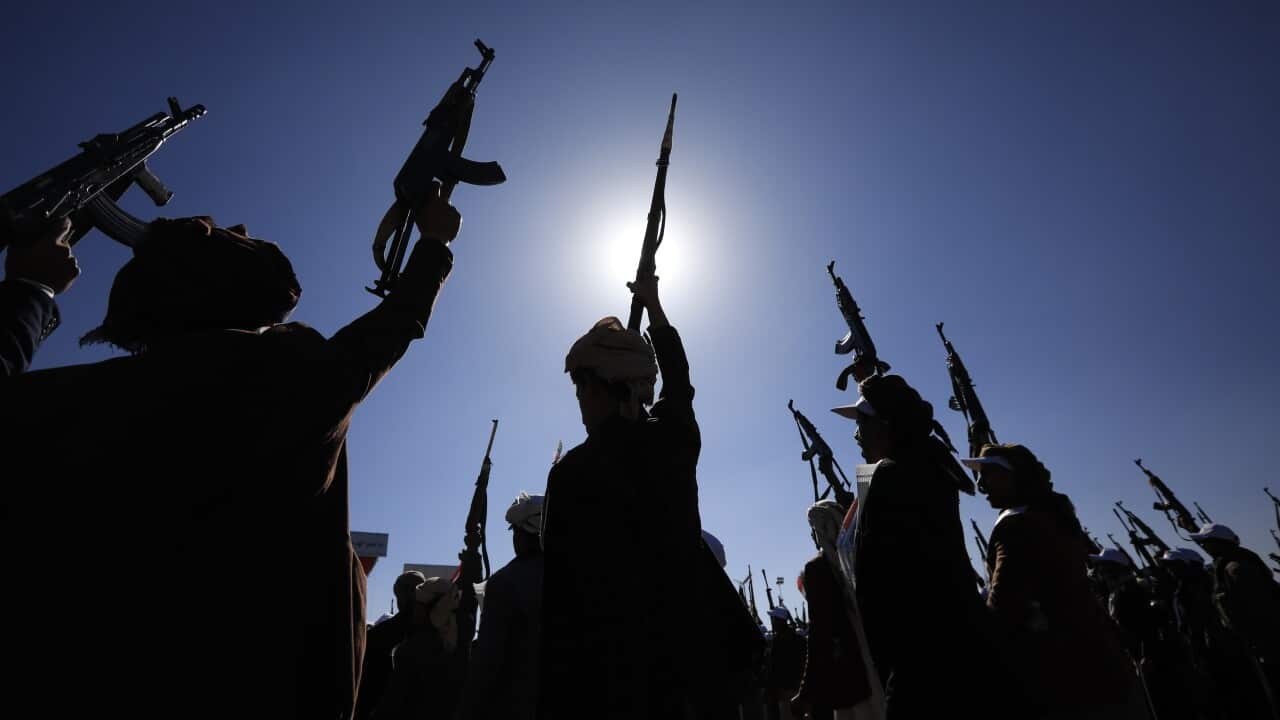Key Points
- Houthi attacks on ships in the Red Sea have slowed trade between Asia and Europe and alarmed major powers.
- The Houthis say they are acting in solidarity with Palestinians.
- Banking executives are concerned that the crisis may cause inflation, which could delay or reverse interest rate cuts.
The United States on Wednesday returned the Yemen-based Houthi rebels to a list of terrorist groups, as the militants claimed their second attack this week on a US operated vessel in the Red Sea region.
have slowed trade between Asia and Europe and alarmed major powers — an escalation of Israel's more than three-month-old war with Palestinian Hamas militants in Gaza.
The Houthis say they are acting in solidarity with Palestinians and have threatened to expand attacks to include US ships in response to American and British strikes on their sites in Yemen.
US officials said the "Specially Designated Global Terrorist" (SDGT) listing was aimed at cutting off funding and weapons the Houthis have used to attack or hijack ships.
"The Houthis must be held accountable for their actions, but it should not be at the expense of Yemeni civilians," secretary of state Antony Blinken said in a statement.
US national security adviser Jake Sullivan said the designation "is an important tool to impede terrorist funding to the Houthis, further restrict their access to financial markets, and hold them accountable for their actions."
"If the Houthis cease their attacks in the Red Sea and Gulf of Aden, the United States will immediately reevaluate this designation," Sullivan said in a statement.
In a sign it remains undeterred, the Houthi movement on Thursday said it made a "direct hit" with missiles on the US Genco Picardy bulk carrier.
The attack marked the second on a US-linked vessel in the area this week, and was confirmed by US shipping operator Genco which said its vessel was hit by a projectile while it transited the Gulf of Aden with a cargo of phosphate rock.
Genco said there were no injuries to crew and the ship suffered limited damage to its gangway and was on a course out of the area.
"The naval forces will not hesitate to target all sources of threat in the Red and Arabian sea within the legitimate right to defend Yemen and to continue supporting the oppressed Palestinian people," the group's military spokesperson Yahya Sarea said in a statement.
On Monday, . There were no reports of injuries or significant damage.
Iranian foreign minister Hossein Amirabdollahian, whose country backs Hamas in its war with Israel, said an end to the war in Gaza was needed to remove the threat to shipping.
"The security of the Red Sea is tied to the developments in Gaza, and everyone will suffer if Israel's crimes in Gaza do not stop ... All the (resistance) fronts will remain active," Amirabdollahian said at the World Economic Forum in Davos.
Supply chains snarled
Maersk and other large shipping lines have instructed hundreds of commercial vessels to stay clear of the Red Sea, sending them on a longer route around Africa or pausing until the safety of vessels can be assured.
"It's one of the most important arteries of global trade and global supply chains and it's clogged up right now," Maersk CEO Vincent Clerc told Reuters Global Markets Forum in Davos, adding that disruption would probably last at least a few months.
Banking executives are worried the crisis might create inflationary pressures that could ultimately delay or reverse interest rate cuts.
Freight rates have more than doubled since early December, according to maritime consultancy Drewry's world container index, while insurance sources say war risk premiums for shipments through the Red Sea are also rising.
The attacks target a route that accounts for about 15 per cent of the world's shipping traffic and acts as a vital conduit between Europe and Asia. Japanese trading house Sumitomo Corp, was the latest company caught up, saying it had some cargoes in the Red Sea that were affected by the situation.
The alternative shipping route around South Africa's Cape of Good Hope can add 10-14 days to a journey when compared to a passage via the Red Sea to the Suez Canal.

Large shipping lines have instructed hundreds of commercial vessels to stay clear of the Red Sea, sending them on a longer route around Africa. Source: Getty / Elmurod Usubaliev
"If it's in the short term, tankers might be available ... But if it's longer term, it might be a problem," CEO Amin Nasser said in an interview in Davos.












